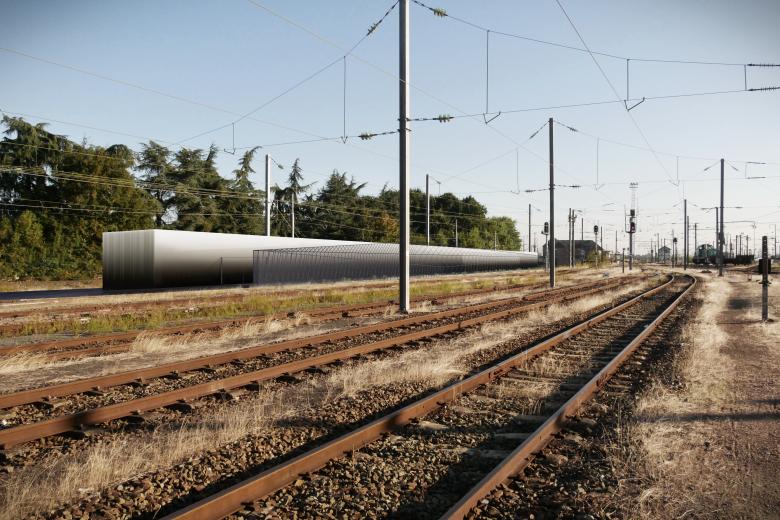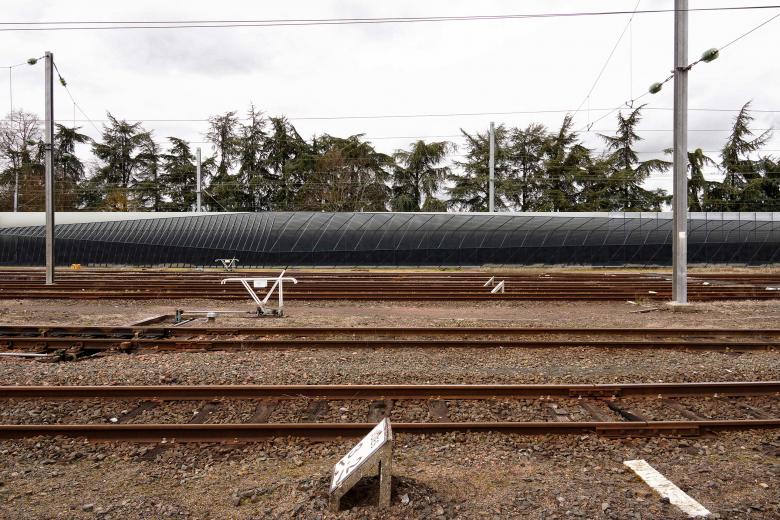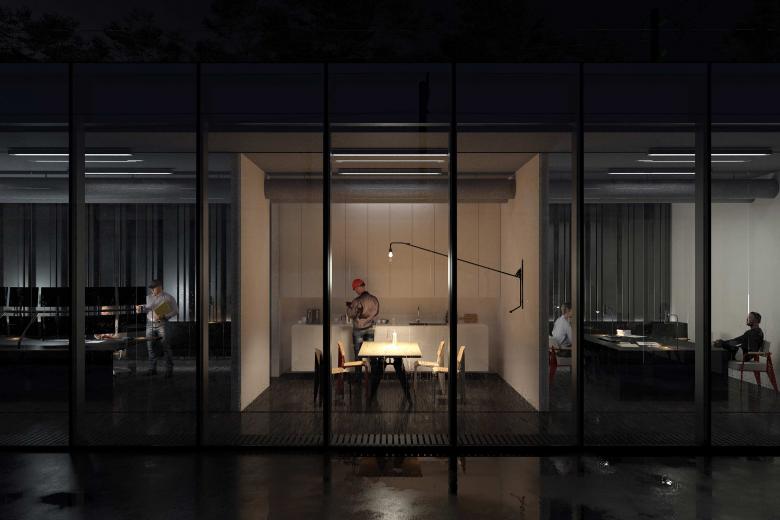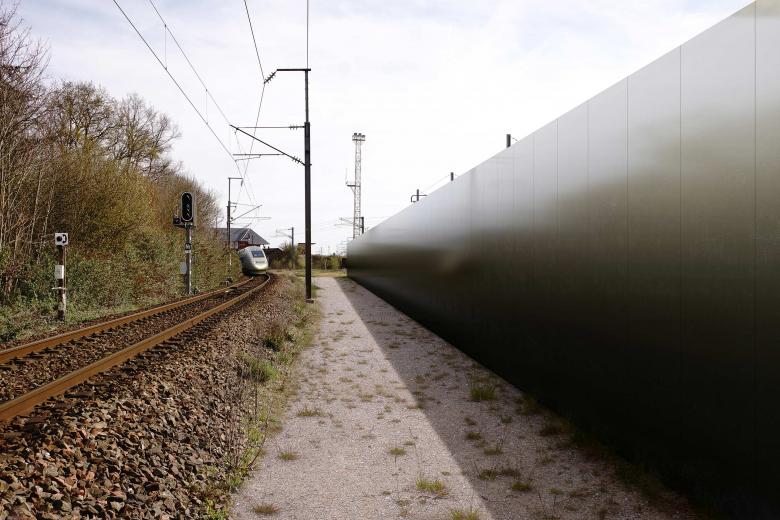Signalling Control Centre
Volver a la lista de Proyectos- Ubicación
- France
- Año
- 2021
Built to serve travellers and to accommodate traffic controllers and all technical facilities, a signalling station is usually a solitary structure, whose shape one can only catch a glimpse of while passing by. Located by the railroad connecting Nantes with Paris, the new Signalling Control Centre for SNCF (French National Railways) is nestled between the train tracks, and wild vegetation in front of some greenhouses to the northwest. Closely tied to the allowances of the landscape, we envisioned the building as a slender creature, a large steel monolith. From the outside, it looks like an artistic installation that seeks to inform our immediate surroundings, while the interior meets all of the necessary requirements of a control centre facility.
There are many lines of approach to the design, each carefully regulated and monitored. Contemporary switchboards, now computerised, no longer have the constraints of their predecessors, which were based on mechanical or electromechanical technologies. Equipped with video surveillance systems, physical monitoring is no longer necessarily required. In order to adhere to a human-centered design approach and to reinforce a sense of openness, the project resulted in a single-storey building – a modular hall, which maximises the potential for interaction between the staff and the outside world, enabling easy access and maintenance.
Envisioned as a whole, all interior spaces, furniture, and lighting are designed specifically for this control room environment. From the outside, there are not many clues that betray the complexity of the interior. Seeking to focus on constructive efficiency and integrating into the train environment, the centre is built out of one main element – steel sheet piles. The advantage of these lies in their structural performance, which provides sufficient supporting capacity both as a foundation and a wall elevation. Once assembled, they form a simple volume – a shield between the natural surroundings and the railroad.
Testing and working with this material palette lends a pervading sculptural and dynamic quality to the building, creating a moment of surprise for the by-passer. A protective metal grid, superimposed to the main body, acts as an extension of what it’s harboring, and creates a clear distinction between the singularity of the building and the rail tracks. Through the radiance of the light, the building seeks to fortify the aesthetic experience of speed, to engage with the observer, to capture a moment that had never happened.



